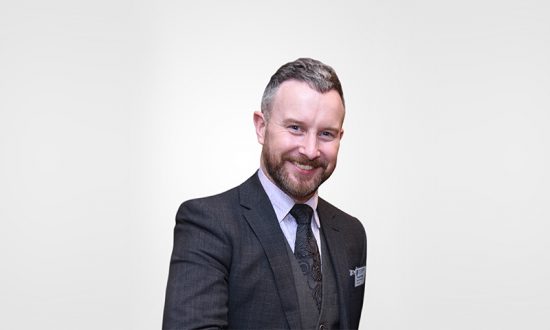Ronan Hodson is the Trinity’s Regional Manager for South Asia and Sub-Saharan Africa. He is a graduate of Trinity with a bachelor’s degree in Experimental Physics and a master’s by research in NanoPhysics. Ronan has been with Trinity’s Office of Global Relations since its formation in 2012, working primarily on student recruitment from India, South East Asia and the Middle East. He is deeply involved in the extra-curricular life of the University and works extensively with Trinity’s rich community of student societies.
Higher education in India is generally very good, and Indian students are widely acknowledged as being talented and hardworking. It was two main challenges. Firstly, there are too few institutions to provide the number of college places the country needs. The second challenge is around generic skills and employability – something we take very seriously at Trinity College Dublin.
Feedback from academics, both in India and internationally, as well as from employers, is that while graduates of Indian institutions are technically strong, they often fall when it comes to “soft skills”, such as communication, teamwork and leadership. It is crucial that graduates acquire these skills at university. There are ways to develop soft skills through formal curricula, using modern teaching methodologies emphasizing teamwork, self-directed learning and research. But just as effective is informal learning through extra- and co-curricular activity.
Universities must ensure students have the facilities, but also the time and energy to organize their own activity outside of the lab and lecture hall. Whether it’s sport, art, debate, charity or whatever, student-led activity provides opportunities for graduates to develop as individuals, as citizens and as professionals, while providing stress relief, social connection and, most importantly of all, fun.
For many years now, Trinity College Dublin has striven to make our graduates “global citizens”. This includes the hope that they will be conscientious and open-minded in all aspects of their lives, but of course also means that our graduates should be able to adapt to work cultures and professional environments in any global context. One of the best ways of achieving this is for students to avail of transnational education opportunities and student mobility. Currently, 30 percent of Trinity students spend a part of their degree in a university outside of Ireland, and we aim to increase this to 50 percent in the next few years.
Being at the Forefront of Research
Put simply, all academic staff at Trinity teach. This is not the case in all high-ranking universities, where often the senior academics only engage in research, while the education of undergraduates and masters students is left to “teaching staff”. At Trinity, if you come to study any discipline, we can guarantee that you will be taught by some of our most prominent research professors in that area, who will be among the leaders of their fields internationally.
In addition, all Trinity students will engage in their own research. All taught programmes include a Capstone Project, which usually takes from 4 to 6 months of the programme, during which students are individually supervised by a professor while undertaking a major research project leading to a thesis. This guarantees that our graduates are capable of managing and completing a substantial, complex academic project, and that they gain experience in high-level, cutting-edge research.
Offering a Smooth Transition
Students are understandably nervous about moving to an unfamiliar city for an extended period. It is a brave thing to do, and at Trinity we appreciate that. Trinity is lucky to be in the heart of Dublin, capital city of one of the safest countries in the world. Dublin is also ranked as one of the friendliest cities in the world. Many, many Indian students have told me how the warm attitude of Irish people made the challenging transition to life in a new city more comfortable.
In addition to this, Trinity has a range of professional support services in place to ensure that our international students take the maximum benefit from their time in Ireland. Combined with an unparalleled, vibrant community of student-led extra-curricular organizations – including a huge and highly energetic Indian Society – the experience is generally very positive, and often life-changing.
My Advice to the Indian Students
Find the course that suits you best. Many institutions offer similar courses, but there will be subtle differences that may change your experience of the programme or the career outcomes after graduation. There will always be staff, either international office staff or academic staff, who will be able to explain in detail what the course offers.
Make sure you choose a university with a strong, varied extra-curricular community. Look at its student societies and sports clubs, its student politics and publications. If it looks like the campus is a fun place to be, that’s a very good sign. (As told to the Editor)




